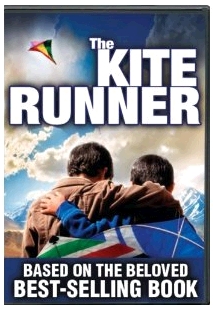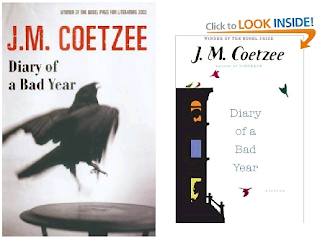Plot Summary [1]
In the hot summer of 1935, 13-year-old Briony Tallis is already an ambitious writer. She has written a play for her older brother, Leon, who is supposed to arrive later in the day. The characters are to be played by her cousins, 15-year-old Lola and the nine-year-old twins Jackson and Pierrot. Briony's sister, Cecilia, has returned home from Girton College, Cambridge, and is trying to sort out her confused feelings toward her childhood friend, the housekeeper's son Robbie Turner, who is also home from Cambridge for the summer. His studies were financed by her father, Jack Tallis, and Robbie is now considering becoming a doctor, which would also be funded by Jack Tallis.
Cecilia wants to fill a vase with water at the fountain in front of the Tallis house. She meets Robbie and they start talking but the conversation quickly becomes awkward. When Robbie wants to help Cecilia with the vase, she remains stubborn, the vase breaks, and two pieces fall into the fountain. Cecilia strips to her underwear, jumps into the fountain and retrieves the fragments while Robbie only stares at her. Briony witnesses the ensuing moment of sexual tension from an upstairs bedroom and is confused as to its meaning.
Leon Tallis arrives with his friend, Paul Marshall. They meet Robbie on their way to the house, and Leon invites him to dinner. Cecilia is irritated at Robbie's coming, but does not know why he bothers her so much.
Meanwhile, Robbie wants to write a letter to Cecilia to apologize for his behavior at the fountain. He indicates that he also feels awkward around her, and, like her, does not know why. After finishing it, he unthinkingly writes another letter, using the word "cunt," suggesting his subconscious desires towards Cecilia. Although he then writes another version of it, the first version is accidentally delivered to Cecilia via Briony, who reads it. Briony consults her cousin Lola. Briony is then convinced that Robbie is a "sex maniac" and that she must "protect" her sister from him.
Upon reading Robbie's letter, Cecilia realizes her love for Robbie and they end up making love in the library. Briony interrupts them, and interprets their lovemaking as a sexual assault upon her sister.
During dinner, the twin cousins run away, leaving a letter. The dinner party divides into groups to go out searching for them. Robbie and Briony are the only ones who are left alone, as Robbie has to acknowledge later. In the dark, Briony comes across Lola being raped by an unknown attacker. Briony blames Robbie as the attacker. Lola, afraid and disturbed, lets Briony do the talking.
The police arrive to investigate, and when Robbie arrives with the rescued twins, he is arrested solely on the basis of Briony's testimony. Apart from Robbie's mother, only Cecilia believes in his innocence.
By the time World War II has started, Robbie has spent three years in prison. He is released on the condition of enlistment in the army. Cecilia has become a nurse. She cuts off all contact with her family because of the part they took in sending Robbie to jail. Robbie and Cecilia have only been in contact by letter, since she was not allowed to visit him in prison. Before Robbie has to go to war in France, they meet once for half an hour during Cecilia's lunch break. Their reunion starts awkwardly, but they share a kiss before leaving each other.
In France, the war is going badly and the army is retreating to Dunkirk. As the injured Robbie goes to the safe haven, he thinks about Cecilia and past events like teaching Briony how to swim and reflecting on Briony's possible reasons for accusing him. His single meeting with Cecilia is the memory that keeps him walking, his only aim is seeing her again. At the end, Robbie falls asleep in Dunkirk, one day before the evacuation.
Remorseful Briony has refused her place at Cambridge and instead is a trainee nurse in London. She has realized the full extent of her mistake, and now remembers it was Paul Marshall, Leon's friend, whom she saw raping Lola. Briony still writes, although she does not pursue it with the same recklessness as she did as a child.
Briony is called to the bedside of Luc, a young, fatally wounded French soldier. She consoles him in his last moments by speaking with him in her school French, and he mistakes her for an English girl whom his mother wanted him to marry. Just before his death, Luc asks "Do you love me?", to which Briony answers "Yes," not only because "no other answer was possible" but also because "for the moment, she did. He was a lovely boy far away from his family and about to die." Afterward, Briony daydreams about the life she might have had if she had married Luc and gone to live with him and his family.
Briony attends the wedding of her cousin Lola and Paul Marshall before finally visiting Cecilia. Robbie is on leave from the army and Briony meets him unexpectedly at her sister's. They both refuse to forgive Briony, who nonetheless tells them she will try and put things right. She promises to begin the legal procedures needed to exonerate Robbie, even though Paul Marshall will never be held responsible for his crime because of his marriage to Lola, the victim.
The fourth section, titled "London 1999", is written from Briony's perspective. She is a successful novelist at the age of 77 and dying of vascular dementia.
It is revealed that Briony is the author of the preceding sections of the novel. Although Cecilia and Robbie are reunited in Briony's novel, they were not in reality. Robbie Turner died of septicaemia caused by his injury on the beaches of Dunkirk and Cecilia was killed by the bomb that destroyed the gas and water mains above Balham Underground station. The truth is that Cecilia and Robbie never saw each other again after their half-hour meeting. Although the detail concerning Lola's marriage to Paul Marshall is true, Briony never visited Cecilia to make amends.
Briony explains why she decided to change real events and unite Cecilia and Robbie in her novel, although it was not her intention in her many previous drafts. She did not see what purpose it would serve if she told the readers the pitiless truth. She reasons that they could not draw any sense of hope or satisfaction from it. But above all, she wanted to give Robbie and Cecilia their happiness by being together. Since they could not have the time together they so much longed for in reality, Briony wanted to give it to them at least in her novel.
[1] Wikipedia.org: Atonement
| Share | Tweet |











